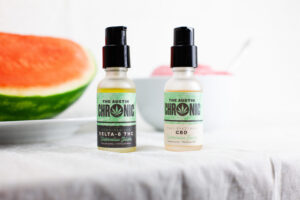Consuming herbal remedies is a worldwide popular trend. This is true even though modern medicine and technology have greatly improved quality of life for many. Many individuals would instead utilize natural treatments over commercial pharmaceuticals because they align with their beliefs about health and wellness. Here, we’re going to discuss such a popular herbal remedy- St. John’s wort. This herb has been around for a long time, and dates back to primitive Greece.
You may have heard about the effectiveness of herbs like St. John’s wort. Articles about it are plentiful online or in the newspaper. Thanks to the regulation around this herb, you can get it at health food shops since it’s an over-the-counter herbal vitamin. We are not medical professionals nor is this medical advice, merely our best understanding of the subject.
What is St. John’s wort?
Initially from Europe and considered as weed in most of the U.S., St. John’s wort is a herbal supplement derived from the wild yellow star-shaped flowery plant named Hypericum Perforatum or Hypericin. John the Baptist inspired the naming of Saint. John’s wort. Usually, the blooming of this plant occurs on or around June 24th, the festival day of Saint John the Baptist.
It is full of various compounds, many of which influence the brain messengers responsible for regulating mood. As a result, individuals often utilize this herb as a complementary supplement for brain function and overall health.
In the United States, you may buy St. John’s wort as a nutritional supplement without any prescription since it’s one of the most often bought herbal remedies in the state. However, France has prohibited its usage in commodities due to worries about medication interactions. St. John’s Wort requires a medical prescription in several countries.

What Are the Active Components of St. John’s Wort?
Pseudohypericin and Hypericin, present in the leaves and the flowers, are the most extensively researched active compounds. However, scientists are still determining whether these chemicals are what give St. John’s wort its beneficial effects. The flavonoids and essential oils naturally inside are the focus of present scientific investigation.
How to Use
With a long history of usage, this herb is popular for many reasons, from sleeplessness and sadness to improving skin health. The use of this herb for different reasons, and its interactions with medicines, have been the subject of substantial study. However, most of the time people use St. John’s wort, it’s related to improving the mind.
Research is still going on St. John’s wort for its potential to be a benefit during menopause. Also, St. John’s wort is sometimes used for external (on the skin) usage for a variety of issues, such as cuts, bruises, and muscular soreness.
What Effects Does it Have?
St. John’s wort isn’t currently recognized by the FDA to have any medicinal value. With that in mind, many people enjoy using St. John’s wort when they’re in a low / bad mood, when they’re having a hard time focusing, or when dealing with a number of other issues that can impact the mind.
What Side Effects Does it Have?
Again, we aren’t medical professionals, so please be aware this is just our best understanding.
There are specific possible adverse effects, such as:
- Nausea
- Vomiting and/or diarrhea
- Painful head and throat
- Drowsiness
- Disorientation
- Dry mouth
- Irritating skin
- Increased sunlight intolerance
Is It Safe To Use?
People often consume St. John’s wort in the form of tablets or capsules, although it is sometimes also available as tea. Also, tinctures, which include the extracts in an alcohol solution, can be for topical use.
However, St. John’s wort should not be in use as a replacement for other necessary substances.
Verdict
St. John’s wort is an ingredient in several teas, capsules, pills, and external ointments that are available without a prescription. Although there isn’t sufficient evidence to support all of its benefits, this plant is often a component in alternative wellness. There’s a lot more to learn about this fascinating herb, and we can’t wait for more studies to come out! The more information, the better.
The FDA (Food And Drug Administration) has not yet authorized the herb for any particular usage. In truth, St. John’s wort is not considered a medicine but rather a nutritional supplement by the FDA. As a result, the government doesn’t conduct efficacy and safety tests on it. We are not medical professionals and this is not medical advice, merely our best understanding of the subject.
So, anyone considering consuming it should act responsibly and get approval from a medical expert beforehand.
Got questions? Drop us a comment below and we’ll get back to you!
Read more about beneficial herbs in our blog on herbs for energy here.



